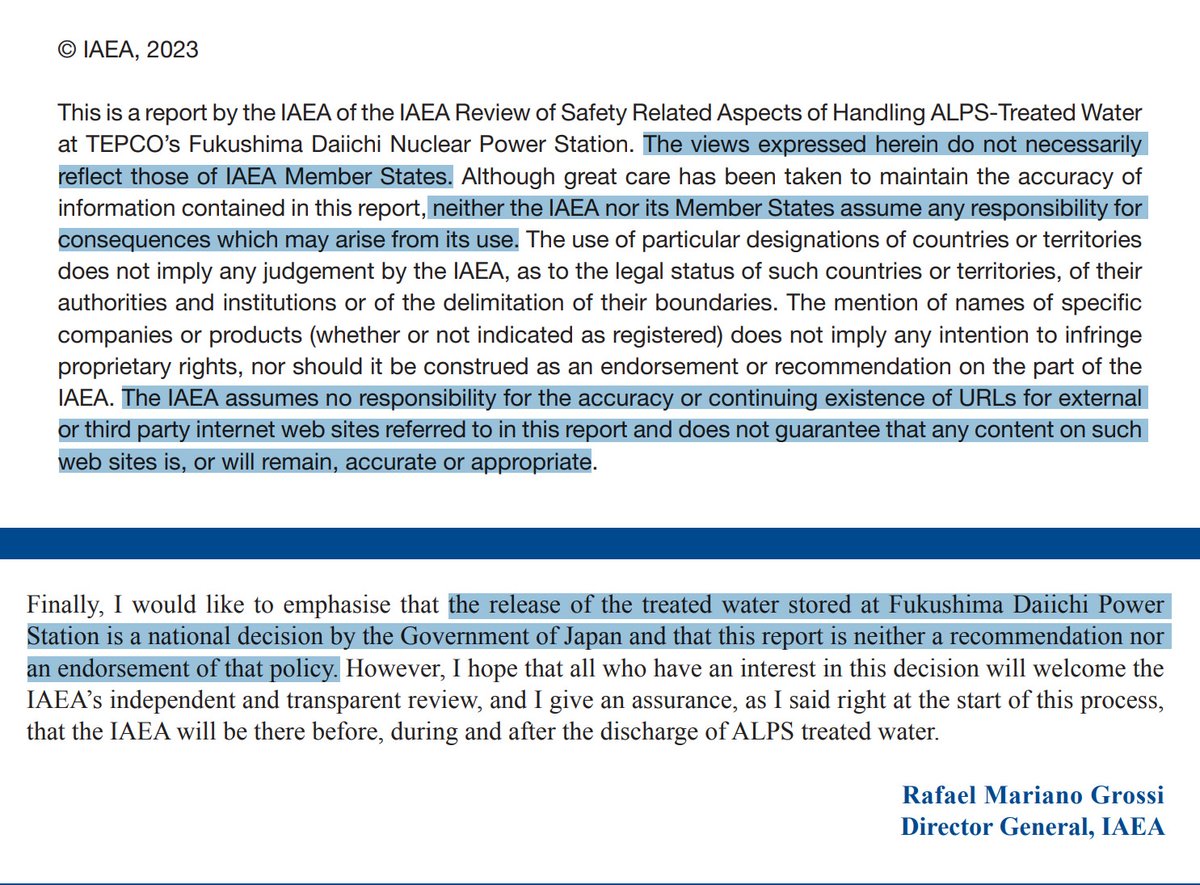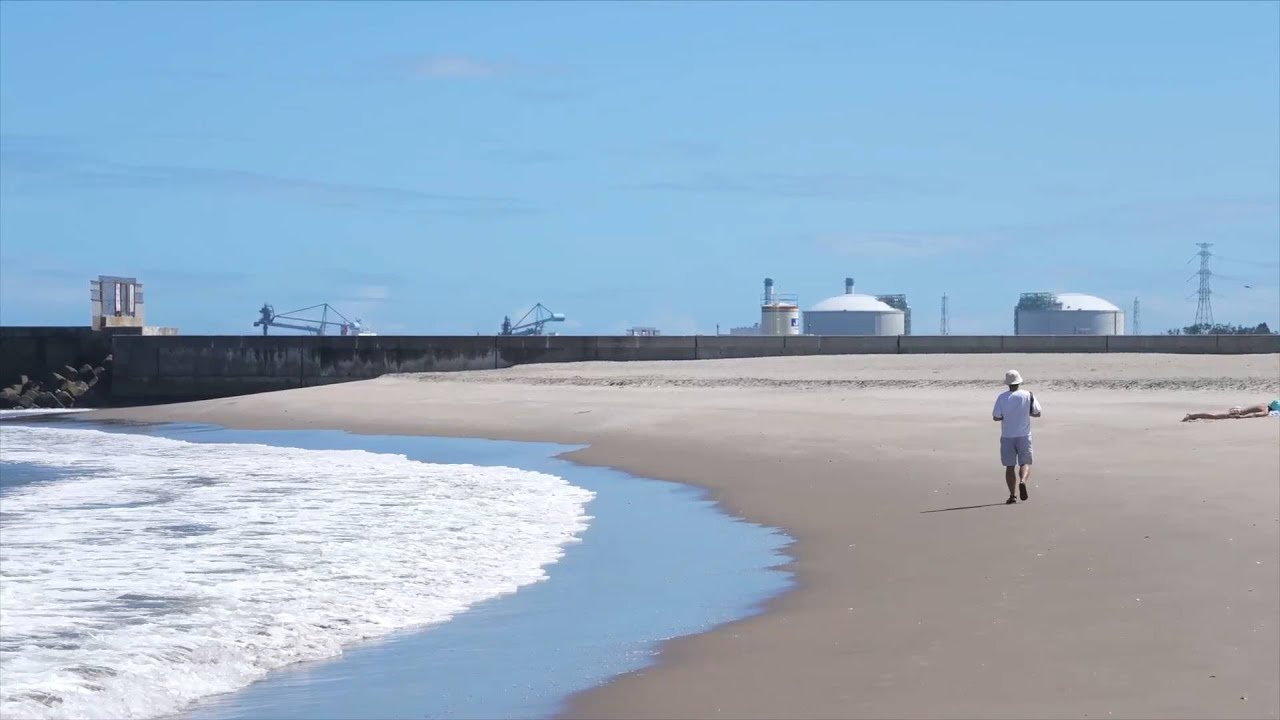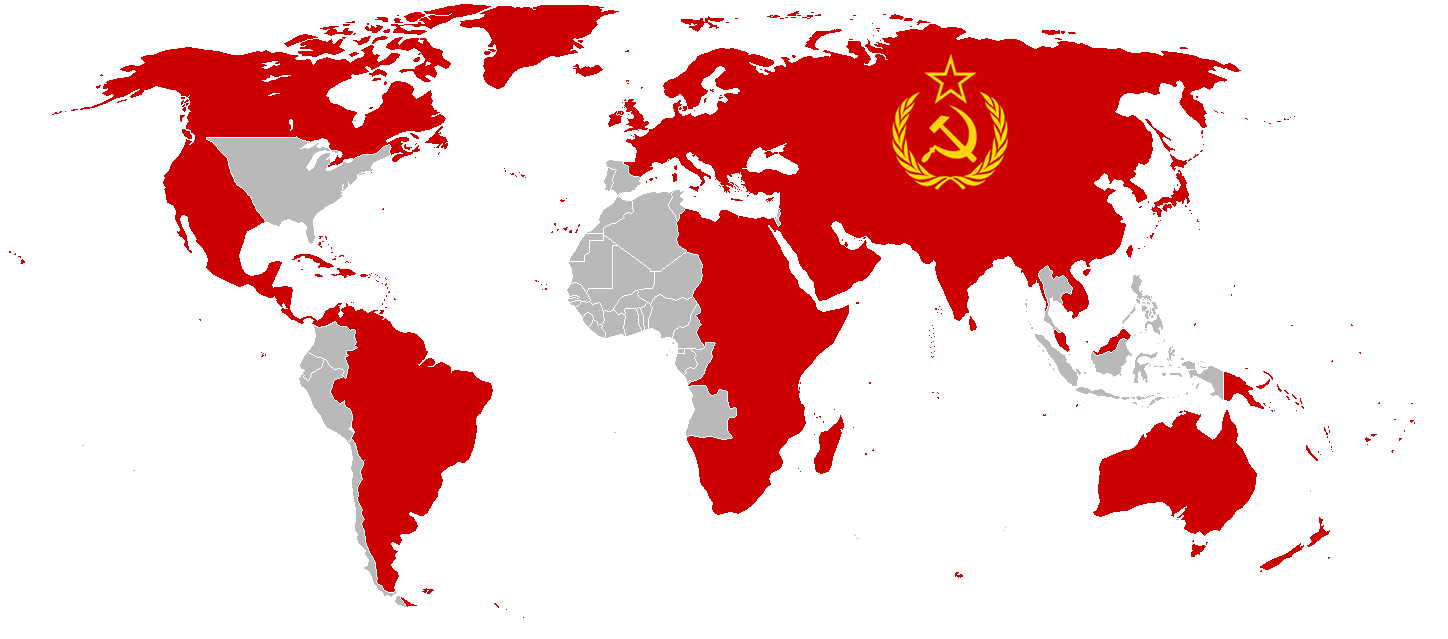"If people eat this kind of contaminated food, it will affect the health of millions and millions of people, for many, many years." Observers say Japan's discharging of nuclear-contaminated water into the ocean may pose long-term threats to human health and the marine environment.
Fukushima was a nuclear disaster, suffering three nuclear meltdowns. The water has become contaminated and radioactive after coming into contact with the nuclear core. No other nuclear plant in the world is doing that. Greenpeace Japan lists other isotopes in Fukushima nuclear contaminated waste water including but not limited to strontium-90, which causes bone cancer
- Show

IAEA says "Views expressed in this document do not necessarily reflect those of IAEA member states"
It's safe to say that this is Japanese Govt. decision, IAEA has no bearing the the final decision
This is the best explanation I’ve seen so far about this.
How would vapor release have been better? That just sounds like choosing to release it into the atmospheric global commons instead of the oceanic global commons, so people would make the same complaints. Is there any data showing expected radiation dispersal in the air vs the ocean?
I think another part of their concern with different isotopes was the source of the tests. The company responsible for testing is also the owner of the power plant. As shown so many times in the past, we can always fall back on our trust in parties with a conflict of capital interest.
I figured out a better search engine term for the topic and found some info on it. Seems to all check out.
I thought that the controversy was because the Fukushima wastewater made contact with the exposed core of the nuclear plant. This introduced — not only more dangerous isotopes — but also greater amounts of it, compared to regular wastewater.
How many times people have to comment here that that contaminated water won’t cause any sort of issues?
Yes: https://www.bbc.com/news/world-asia-66106162
Tritium and carbon-14 are, respectively, radioactive forms of hydrogen and carbon, and are difficult to separate from water. They are widely present in the natural environment, water and even in humans, as they are formed in the Earth's atmosphere and can enter the water cycle.
Both emit very low levels of radiation, but can pose a risk if consumed in large quantities.
The filtered water goes through another treatment, and is then diluted with seawater to reduce the remaining substances' concentrations, before it is released into the ocean via a 1km underground tunnel. Tepco will monitor the radioactivity of the processed water at various stages as well as the ocean water at the discharge site.
Tepco will monitor the radioactivity of the processed water at various stages as well as the ocean water at the discharge site.
Ah yes because Tepco was never caught lying about measurements in the past. Your security assurances are useless if there is no way to make sure the filtering is actually done. You assume we suddeny forgot about them constantly lying in the past. They are all Samurai with an honor code, there is no way a private company will engage in cost cutting, right?
Show Show
Show Show
Show
@traveler@lemdro.id
Pls come back and defend the bbc article
stop tagging me please.
I won't waste my time defending a BBC article when most of the evidence presented is 10+ year old.
Also, there's a lot of anti-nuclear bullcrap fearmongering going on here and judging by the ☭ in some names it cant be a coincidence.
What evidence? You posted some damage control article ("Tepco said trust me bro, so its aight") of the crackerverse countries now ordered to publish everywhere to defend their battle slave. "We need to keep our people's opinion of Japan high, we might need to use them as a second Ukraine later". Wouldn't even surprise me if our Bri'ish gents already banned imports from affected regions lmao
there’s a lot of anti-nuclear bullcrap fearmongering going on here and judging by the ☭ in some names it cant be a coincidence
You must confuse them with Germans, for which nuclear energy is like black magic nowadays. The position of "☭"-enjoyers is actually consistent, as it really makes no sense to leave the filtering and dumping to a well-known lying private enterprise, that's not even that hard to understand. And the IAEA, which received suddenly $1-2 million (alias got bribed) from Japan.
Tritium has a half-life of only 12 years. In 80 years, 99% of it is gone.
I would be more concerned that the filtration system wasn’t sufficient enough to remove more dangerous radioactive contaminants. I believe that’s what the countries around who are opposed or skeptical are concerned about.
12 years have already passed, so 50% is already gone.
How much is enough? 1% of a large concentration is quite different than 50% of a small concentration. Shouldn’t we compare this in units of concentration instead of vaguely defined percentages?
Also, why are we focusing on the tritium? Are you confident that everything else is filtered so we don’t have to worry about the rest?
If the radiation from the water is negligible compared to background radiation, then it should be safe for consumption, given that all toxic substances are removed.
The fact that they didn’t provide the evidence showing the lack of radioactivity is indicative that they are releasing it prematurely. The fact that they mentioned a lack of space is indicative of a monetary reason.
They ran out of funding to hold the toxic radioactive water, so they’re dumping it out into the ocean.
The International Atomic Energy Agency says it’s within safe limits, but I do agree that monetary reasons seem to make this release questionable.
Well the problem with that is the stored water would be much more concentrated. A leak would therefore be much more dangerous.
What kind of logic is that.
Your solution is that storing it for 80 years is bad because 1% is left, so let’s dump 100% right now????
Also, why is the talk only about tritium and carbon-14 in this report, ignoring 64 other elements present in the water that potentially contain harmful effects. The IAEA report states they only investigated these two elements by Japan's request, it does not imply that there are no other elements they can or should also investigate, just they didn't because they weren't requested to.
I think you might want to rephrase that. The plan isn't really to "release contaminated water," but rather treated and diluted water.
Leftist spaces are also more likely to express backlash at anything that may contaminate the environment, with good reason. You need to consider your audience, and consequently, your rhetoric.









